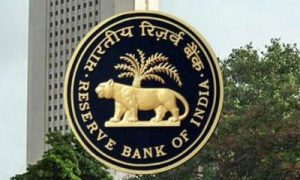Under the new rule, unused funds lying with brokers need to be transferred back to the customer account by brokers after the end-of-day obligations
From today (October 7), a new Sebi rule has kicked in related to share trading. Every first Friday of the month, all brokerages will now have to transfer unused funds back to the customer’s bank account as part of the new account settlement (AS) process. However, the new rules give clients the option to either go for every month or quarterly basis.
Read More: Online e-PAN card download: A step-by-step guide
The new rules mean that the unused funds lying with brokers need to be transferred back to the customer account after the end-of-day (EOD) obligations. The funds that have been initiated to be transferred on Fridays will be able to be used on the following Mondays, as the account settlements don’t take place immediately. It takes at least a day.
Online brokerage firm Zerodha co-founder Nithin Kamath said in a series of tweets, “Starting this October 7th, every first Friday of the month, all brokerages must transfer unused funds back to the customer’s bank account as part of the new account settlement (AS) process. I guess it will be more than Rs 25,000 crores across the industry.”
“So if your Zerodha account balance reduces or you receive funds in your bank this Saturday, you know why. Until now, AS was spread across a quarter. The idea of doing this in one day, I guess, is another way to test if brokers are misusing client capital in any way,” he said in another tweet.
Kamath also said the AS regulation is kind of unique to India. In most countries, brokers, like banks, can hold unused funds forever and also use them for working capital requirements. In India, client funds can only be used for that customer’s trades after all the regulatory changes.
“While the new AS process is good for customer safety, the broking industry will have a few issues to manage. 1. Operational risk of sending large amounts in one single day. 2. Much higher working capital requirement, especially on Monday after AS. 3. Hit on float income,” he said in a tweet.
On the settlement, he said payment gateways settle funds with brokers on T+1. So if a broker allows you to trade instantly with funds transferred using PG, the broker’s own capital is blocked. On the Monday after AS, more funds might be transferred to trade using PG.
“If the broker allows buying stocks with proceeds from stocks sold immediately, the broker’s own funds will be blocked until the exchange settles by T+2 days. While this isn’t directly related to AS, it will all add up,” Kamath said.
Zero Brokerage
Brokers in the US can offer zero brokerages because they can use customer funds for working capital, earn through payment for order flow, and by lending customer securities. All this is not allowed in India, and rightly so.
“If I were to bet, I’d say there will be upward pressure on brokerage rates over the next few years due to all the regulatory changes. While these changes are good in terms of customer safety, they will lead to increased working capital requirements for the broking industry,” Kamath said.





































